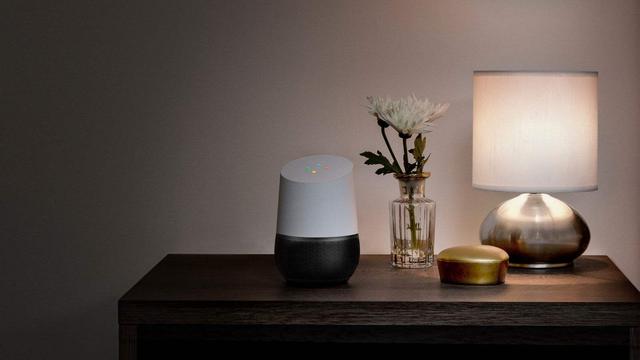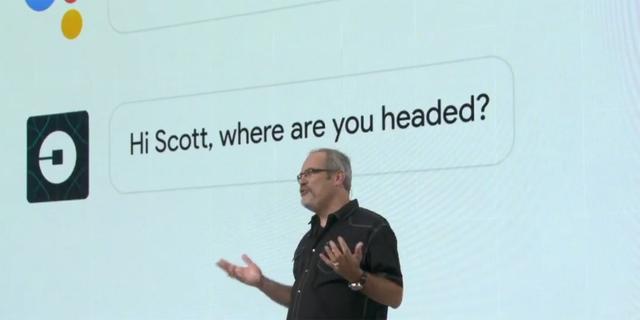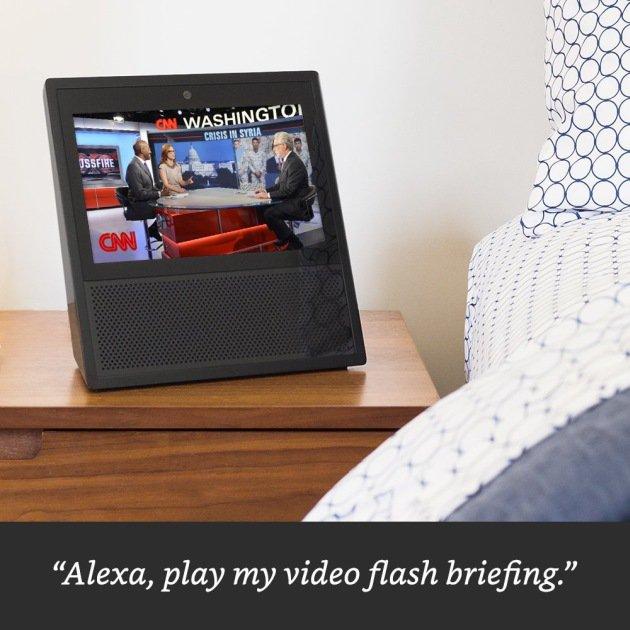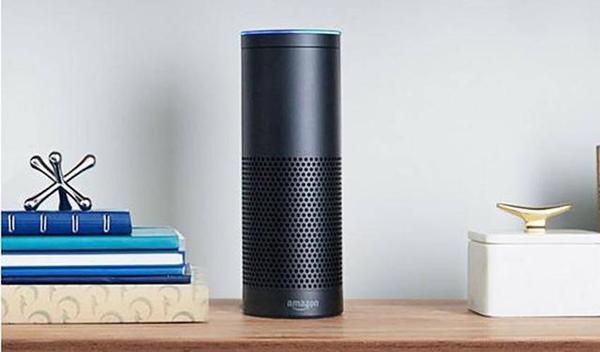OFweek smart home network news in addition to continuing to make smart speakers do bad, our company may be able to learn something at Google conference.
It stands to reason that the smart speaker market in China should not become a topic in the recent period because the concept is not too new and the products are really lackluster. The so-called "connection" with smart homes seems to be far away.
In the recent past, several domestic brands have spontaneously introduced smart speaker products. It seems that the temperature of smart home “entrance†is picking up again.

Especially after we saw the new version of Google Home released yesterday at Google I/O, the topic of smart speakers should be discussed extensively.
What is the "other people's home" smart speaker doing?

At the Google I/O conference, our main concern was Google Home and Google Assistant. For both products, we can directly target Amazon's ECHO and Alexa, both positioning voice interactive smart home devices and behind the intelligent voice interactive system.
I believe that after seeing the release of Google's products yesterday, ECHO team members will also be a black line, because Google's hot pursuit of ECHO is indeed chilling.
The new version of Google Home does not change its appearance, but after upgrading through deep learning and other technologies, it now requires only two microphones to accurately locate the people around them. Most importantly, Google Home has implemented support for six users on the same device, and it can hear everyone's voice and provide personalized service for everyone.
In the live demonstration, after Google’s Vice President Rishi Chandra said “Call My Momâ€, Google Home accurately judged who was making the order and found out exactly who the person’s mother was, and then dialed out. The significance of this function is that when both men and women say "Call me" at home, Google Home won't be unable to execute the order, nor will she mess with her.
In addition to dialing the phone, Google Home also upgraded three functions, namely automatic reminder (life assistant), music/video playback, and image feedback. The third feature is also a major breakthrough. Although there is no video capability, Google Home can choose your mobile phone or other video device to “play†feedback for you when it receives your image request. For example, if you need to go to a restaurant, Google Home will show the corresponding road map on your mobile phone.
Google Assistant, the increasingly powerful intelligent voice assistant, has become increasingly “terrible†when Google powers the new features of Google Home.
Not only has it been installed and used on 100 million devices, but with the development of voice and semantic technology, this voice assistant can already complete the new features (not just translations) of seeing pictures, and if you take a shot with a mobile phone, The airplane, which will prompt you to book flights for this company; or have a cinema, it will help you book tickets online. Even so, Google Assistant has added text input to re-introduce text communications into smart interactions.
In the same way, such an intelligent system has begun to play ecologically (but not against it!). Google Assistant has teamed up with more than 70 smart home manufacturers to collaborate and you can think of everyday items that may be involved, including washing machines, refrigerators, strollers, dishwashers, and more.

Perhaps, two weeks ago, when Amazon released the new Echo Show, it did not happen that Google would be pressing harder and harder in the field of smart speaker technology.
The highlight of the Echo Show is the "eye": the camera; and the "mouth": microphone, and touch screen display. However, Echo Show is undoubtedly asking for a stone, and the smart home market is being tested through voice and computer interactions and screens. The two innovative companies have taken steps in every step of the industry, and they are impressed by the potential of innovative DNA.
Can you not put the market first?

Back to the local market, when Google Home and Amazon ECHO can only be used for a variety of reasons, what did most smart speaker manufacturers introduce?
Currently in the market, the majority of smart speaker products are behind the Internet and IT giants.
Among them, including the smart speaker series (JD.com and HKUST.com), Rambler Series Intelligent Cloud Speaker (in cooperation with Ali Smart), Sonos family smart speaker (in cooperation with Tencent e-commerce), and Lenovo also just released this week. Smart speaker fashion version of new products. Another camp is the smart speaker series launched by traditional audio brands such as JBL, Philips and Tianlong.
For these series of smart speaker products, more evaluation and description are redundant, because the word "disappointment" is enough.
Some people may not approve of such judgments, but we calmly think about it. Apart from the innovation of "business model" such as content resources and sales channels, what does our smart speaker manufacturer provide for the development of the smart home industry? I am afraid only follow suit and follow.
Not long ago, Qian Chen, a former CTO of Hammer Technology, said to the media: “Behind the hundred schools of thought, the concept of smart speakers will be made smelly.â€
Qian Chen was not the first to reveal the emperor's new clothes, and he was a dare to face up to industry abuses and speak loudly to the truth. Qian Chen pointed out that smart speakers do the front-end sound processing level and there is no high level in China. In the front-end sound processing technology field, it is divided into a microphone array (multiple microphones) and two kinds of technology genres. The former is created by Amazon ECHO, and the latter is developed by Google Home.
Qian Chen said, "No matter how the vendors tell stories, they can't escape the two."
On the equipment side, noise cancellation is the primary problem. Some of the domestic brands such as Conexant, Yunzhisheng, Sibichi, and HKUST, etc., provide technical solutions that mainly focus on noise cancellation and cloud processing.
However, Qian Chen emphasized that the current speech device technology can be divided into three phases: noise cancellation, speech recognition, and semantic recognition.
"But in the semantic recognition of this block, there is a big gap with foreign countries."
If you say that the cloud knows sound, Sibi Chi, HKUST, and other companies in the semantic recognition of the future there is the possibility of gradually catching up with Microsoft, Amazon, then the biggest hidden danger is: the equipment is not yet done.
Qian Chen pointed out: "If the noise reduction block is not handled properly, the HKUST tactile algorithm will not do well anymore. The recognition rate will decline, and semantic recognition will not be discussed."

In the interviews he presented in these interviews, the industry is not without consensus. However, new products that are notoriously new, despite their “contending ideasâ€, have also exposed short-sightedness in terms of technology and innovation. The market can really rely on these products to mature?
Impetuosity is not only reflected in the mentality of smart speaker manufacturers. Chen Xiaoliang, the founder of Sound Intelligence Technology, once wrote that if you don't put smart speaker products as strategic products to invest in R&D, it's estimated that the products made will inevitably be unsatisfactory. Although many domestic manufacturers believe that they have invested a lot, compared to the Amazon ECHO, this is a bit of a shame.
"In fact, the competition between companies is not about 80% of the investment in 20%, but 20% of the investment in exchange for 80%. Most of the time, it is often the 20% that determines the success or failure of the company's competition."
Perhaps this is not the establishment of a specialized laboratory by the relevant state agencies. The certification of these smart speakers can be solved. The gap between them is really not only the increase in the error rate of speech recognition, but also the change of the microphone from seven to eight to two or one. It is an impetuous mentality for a new type of market.
Whether the smart speaker industry will be ruined or not, Qian Chen's admonition against the ear may not be entirely correct, but it is sobering.
Pond Frequency Pumps,Submersible Filtration Pump,Various Fountain Heads Pump,Pump With Asynchronous Motor
Sensen Group Co., Ltd.  , https://www.sunsunglobal.com
